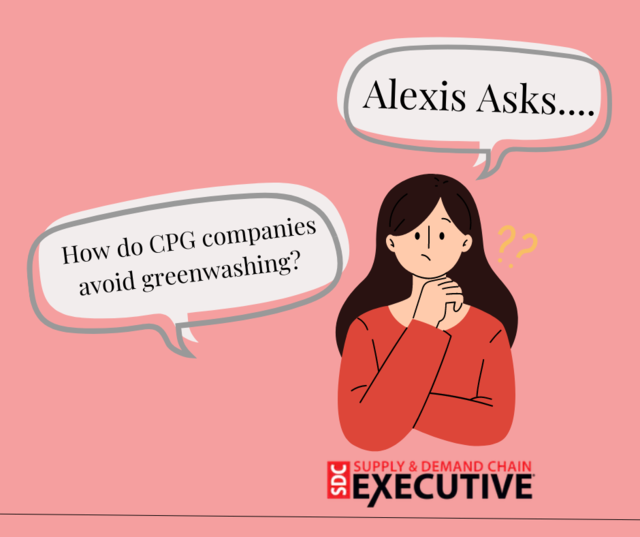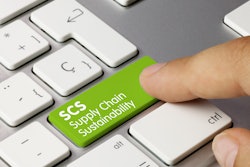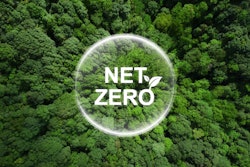
Over recent years consumers have been seeking out products more and more that align with sustainable values and purpose. We see them on the shelf, decorated with green imagery of plants and nature, seemingly emphasizing this quest for a healthier environment. So, we buy them in hopes that this single purchase sparks change— and then we look for more. Here's the demand that has spurred a rise in green marketing and eco-friendly claims in Consumer Packaged Goods (CPG). However, amidst the sea of green —and "green"— labels, a disconcerting practice known as 'greenwashing' has emerged. Greenwashing refers to the deceptive marketing tactics employed by companies to create an illusion of environmental responsibility while masking, knowingly or unknowingly, practices that might not be all that eco-conscious.
The U.S. Federal Trade Commission (FTC) has been at the forefront of combating greenwashing through its Green Guides for over 30 years. These guidelines provide businesses with clear instructions on how to avoid making misleading environmental claims. While they've been around for quite a while, the current trajectory in this sector points to tougher guidelines coming soon. According to Dean Alms, chief product officer at Aravo, the FTC’s Green Guides may become more stringent following a public commenting period in which consumer advocacy groups expressed support for closer scrutiny of corporate ESG claims. “Greenwashing has become a new focus for regulators and consumer advocates seeking to end the practice. Accordingly, it is likely to get more difficult for CPG companies to feign commitment to ESG principles and goals but fail to deliver and get away with it. Regulatory bodies, including the FTC and the U.S. Securities and Exchange Commission (SEC), are likely to hold more companies’ feet to the fire," says Alms.

The Green Guides play a vital role in guiding businesses to make accurate and transparent assertions. They also empower consumers by fostering trust and enabling them to make informed purchasing decisions based on legitimate claims— not false advertising.
Greenwashing in CPG can manifest in various ways. It may involve misleading packaging that showcases eco-friendly imagery, exaggerated claims of recyclability or general buzzwords like "green," "natural" and "eco-friendly", without any substantial evidence to back them up.
Addressing greenwashing and adhering to the Green Guides has been most effective through visibility and extended accountability. "CPG companies need visibility into their third, fourth and -nth parties’ business practices, including manufacturing and distribution facilities in foreign and domestic markets, to be able to drive accountability, compliance and risk management. After all, without visibility into your extended enterprise’s operations, you can’t manage or mitigate what you can’t see firsthand," explains Alms. Utilizing 3rd party, AI-driven risk management platforms can be a single source of truth to combine visibility for all levels; helping compliance teams meet regulations and avoid costly investigations— all the while validating that they're not greenwashing.
"This unified visibility also fuels supplier performance management, which is where CPG companies can drive additional accountability. Centralizing performance and risk management and using it to track and measure a supplier’s performance vis-a-vis ESG commitments helps companies understand which 3rd parties are meeting expectations and adding value, and which require further improvement in line with their service level agreements," says Alms. And that's how companies can hold their business partners accountable and decide whether a supplier is an asset or liability in ESG.
To combat greenwashing and drive meaningful change, a collaborative effort is necessary. CPG companies, industry associations, consumers and regulatory bodies like the FTC must work together to promote transparency. CPG companies should adopt comprehensive sustainability strategies, conduct assessments and provide clear and verifiable information about their products' environmental impact. Alms describes this collaboration as a critical part of avoiding greenwashing, as buyers and suppliers align expectations up front on ESG commitments, in public statements, and in their advertising so all parties understand what it means to be “ethical” and or “sustainable”.
Greenwashing poses a significant challenge in the CPG industry by undermining the efforts of genuine sustainability champions. The FTC's Green Guides serve as a tool to combat this practice and protect consumers from misleading claims. To create a truly greener future, companies need to embrace transparency through visibility software and reporting to cultivate stronger relationships that ensure the products we purchase actually contribute to a more sustainable world.




















